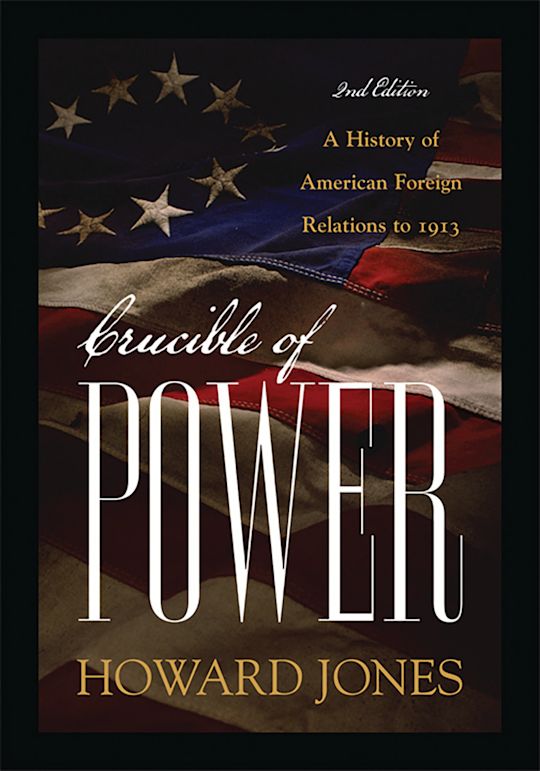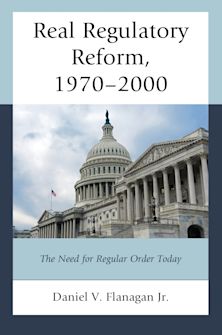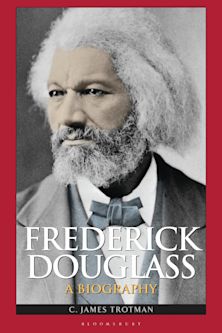- Home
- ACADEMIC
- History
- United States History
- Crucible of Power
Crucible of Power
A History of American Foreign Relations to 1913
- Textbook
Crucible of Power
A History of American Foreign Relations to 1913
- Textbook
Inspection copy added to basket
This title is available for inspection copy requests.
Please note our inspection copies are only available in ebook format, and are fulfilled by VitalSource™. If an ebook isn’t available, please visit our inspection copy page for more information.
Buy from Bloomsbury eTextBooks
You are now leaving the Bloomsbury Publishing website. Your eBook purchase will be with our partner https://www.vitalsource.com.
Your credit card statement will show this purchase originating from VitalSource Technologies. They will also provide any technical assistance you might require.
You must sign in to add this item to your wishlist. Please sign in or create an account
Description
Crucible of Power: A History of American Foreign Relations to 1913 presents a straightforward, balanced, and comprehensive history of American international relations from the American Revolution to 1913. Howard Jones demonstrates the complexities of the decision-making process that led to the rise and decline of the United States (relative to the ascent of other nations) in world power status. Howard Jones focuses on the personalities, security interests, and expansionist tendencies behind the formulation and implementation of U.S. foreign policy and highlights the intimate relationship between foreign and domestic policy. This updated edition includes revisions and additions aimed at making the book more attractive to students, teachers, and general readers.
Table of Contents
Chapter 2: The Federalist Era and the Wars of the French Revolution, 1789–1801
Chapter 3: Jeffersonian Diplomacy, 1801–1809
Chapter 4: The War of 1812 and the Completion of American Independence, 1809–1817
Chapter 5: The Diplomacy of Hemispheric Order, 1817–1825
Chapter 6: To the Webster-Ashburton Treaty, 1825–1842
Chapter 7: Destiny and Annexation: Oregon, Texas, and the Mexican War, 1842–1848
Chapter 8: Between the Wars, 1848–1861: Young America and the Paradox of Slavery and Freedom
Chapter 9: The Civil War, 1861–1865
Chapter 10: Prelude to American Imperialism, 1865–1897
Chapter 11: U.S. Imperialism and the New Manifest Destiny, 1897–1900
Chapter 12: Theodore Roosevelt and the Search for World Order, 1900–1913
Product details
| Published | 16 Mar 2009 |
|---|---|
| Format | Ebook (Epub & Mobi) |
| Edition | 2nd |
| Extent | 352 |
| ISBN | 9781442208889 |
| Imprint | Rowman & Littlefield |
| Publisher | Bloomsbury Publishing |
About the contributors
Reviews
-
Howard Jones has written a definitive history of American foreign relations before 1913. He reminds us once again that U.S. foreign policy did not begin in 1898 as he develops a narrative that is detailed but never boring. Those often forgotten years come alive as he moves from the uncertain nation of 1783 to the powerful one of 1913.
Anna Kasten Nelson, distinguished historian in residence, American University
-
Historians will welcome Jones's approach, one that evenhandedly addresses but does not belabor historiographical debates, but one that also gives more than just the facts. The survey provides context, analysis of the good and the bad, and a non-compartmentalized look at issues, people, and events. Jones demonstrates that, from Tom Paine to Teddy Roosevelt, Americans were concerned with surviving in a dangerous world by building and exercising power abroad.
Thomas W. Zeiler, author of Ambassadors in Pinstripes: The Spalding World Baseball Tour and the Birth of the American Empire
-
A readable and comprehensive survey of American foreign policy from the time of independence to the eve of World War I. Jones interweaves traditional security and economic themes with the domestic considerations that drove the decisions of U.S. policymakers. At the same time, he reminds readers about U.S. idealism—the nation's confidence in its own system and society—that contributed to the making of a world's leader.
Thomas M. Leonard
-
It is a pleasure to see the publication of Howard Jones's history of American foreign relations. The author has drawn from his own impressive contributions to illuminate the often neglected role of diplomacy in the nineteenth century. This well-written and well-balanced book merits the attention of all students of American foreign relations.
Lawrence S. Kaplan, emeritus director, Lyman L. Lemnitzer Center for NATO and European Union Studies

ONLINE RESOURCES
Bloomsbury Collections
This book is available on Bloomsbury Collections where your library has access.



































